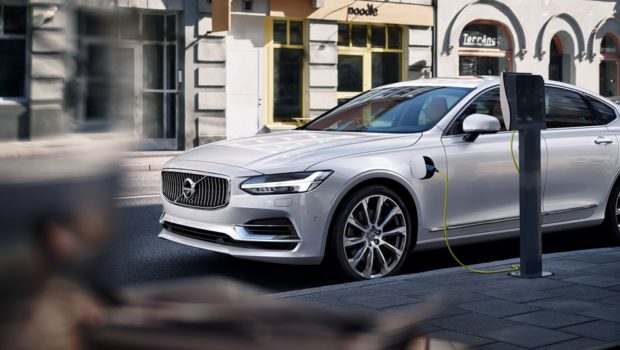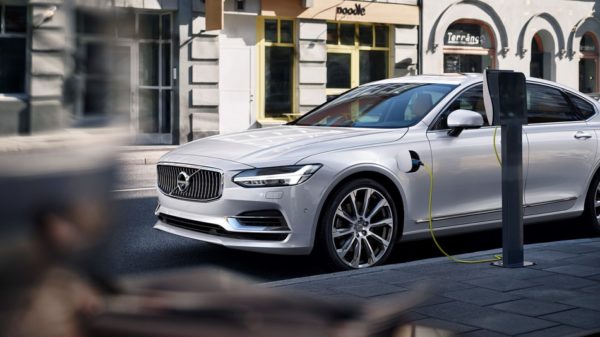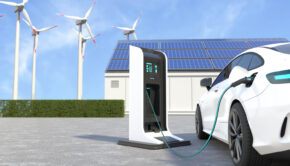The Extinction of Fossil Fuels: Why Electrified Vehicles Are the Future
Electrified vehicles are part of the disruptive technology trend in the automotive industry (which also includes connectivity, autonomous driving, and diverse mobility). With advancements in automotive technology and and rising air pollution, electrified vehicles are becoming viable alternative to diesel-powered cars.
What are electrified vehicles?
Although electric vehicles and electrified vehicles are often used interchangeably, they are not quite the same. Electric vehicles are fully electric, whereas electrified vehicles encompasses vehicles that use various forms of electrification. The classification of electrified vehicles are subject to debate, but they may include hybrid, plug-in, battery electric and fuel cell cars. Below are some explanations:
- Hybrid vehicle—the most basic form of electrification is the mild hybrid car, which uses a compact electric motor to complement the gasoline- or diesel-burning engine. Mild hybrid technology reduces fuel emissions and is easier to integrate into an existing design. However, it can’t power a car on electricity alone. Standard hybrid cars, on the other hand, uses more powerful electric motor and an appreciably bigger battery back.
- Plug-in hybrid electric vehicle (PHEV)—a type of hybrid electric vehicle whose battery can be recharged by plugging it in to an external source of electric power as well by its on-board engine and generator.
- Battery electric vehicle (BEV)—an electric vehicle that uses chemical energy stored in rechargeable battery packs. It has no backup gasoline engine and is fully electric.
- Fuel cell electric vehicle (FCEV)—a vehicle that refuels with hydrogen and uses a fuel cell to produce electricity in order to propel itself.
The rise of electrified vehicles
Bloomberg predicts that electrified vehicles sales could grow rapidly, surpassing gasoline and diesel cars by 2038. Similarly, a report by McKinsey predicts that the share of electrified vehicles could range from 10 percent to 40 percent of new-vehicle sales in 2013.
Major automakers are already shifting from producing diesel vehicles to electric and electrified vehicles. For instance, Toyota and Mazda pledged to build a $1.6 billion U.S.-based plant by 2021, where they’ll work on electric and hybrid vehicles. Volvo will electrify its entire vehicle line by 2019, with five all-electric models slated to roll out from 2019 to 2021. As well, Mercedes-Benz outlined a plan to electrify its entire portfolio by 2022, offering 50 electric and hybrid models.
This trend is driven by a number of factors, including a growing movement to cut down on vehicle emissions, competing with the popularity of Tesla and its electric automotives, and the future restrictions on internal combustion engines.
In fact, a number of nations have announced plans to abandon fossil fuels in the upcoming decades to combat air pollution. These nations include France, Germany, India, China the Netherlands, and Norway.
China, the world’s biggest car market, is working on an outright ban on gas-powered vehicles and is ramping up efforts to build out electric driving infrastructure. France and the UK announced that new gas and diesel vehicles will be banned by 2040, while Germany is planning to require all new vehicles to be zero-emissions vehicles by 2030.
As well, electrified vehicles are becoming more affordable through continuous improvements in automotive technology. According to a McKinsey report, electrified vehicles are expected to gain more market share as they achieve cost competitiveness with conventional vehicles. For instance, battery costs will potentially decrease from $150 to $200 per kilowatt-hour over the next decade.
The future is electric
Electrified vehicles, in addition to self-driving vehicles connected cars, are replacing traditional diesel vehicles. Not only are these disruptive technologies transforming the automotive industry, they will also have an impact on the job market. Highly specialized skills in electromechanics, for instance, will be in greater demand in order to operate and maintain these vehicles. Young professionals can acquire skills in this growing industry by taking electronics technician training courses. By acquiring new skills and staying on top of industry trends, we can prepare ourselves for an electrifying future.

















